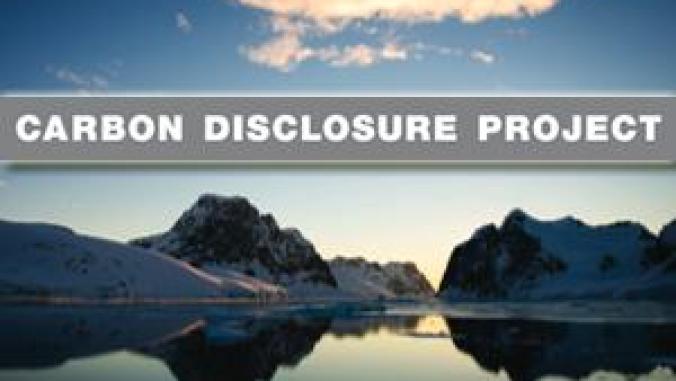U.K. Environmental Reporting a Mixed Bag, Reports Find
A slew of recent studies have found that just under half of the U.K.'s top 100 listed companies have released their carbon footprints and strategies, while almost a third refuse to release even the most basic green data; experts predict next year will show watershed improvements.
Corporate reporting on environmental issues is gradually improving, but there are signs the market is beginning to polarize, with some firms embracing sustainable reporting best practices and others refusing to release even the most basic green data.
That is the finding of two new reports on environmental reporting which reveal that while levels of disclosure are improving slowly, most businesses are still failing to release the environmental performance metrics and strategies increasingly demanded by investors and customers.
According to a major new survey from The Guardian newspaper released today, only 48 of the U.K.'s top 100 listed companies have released a plan to cut their carbon emissions, while almost a third refuse to publish their carbon footprint.
A separate study [PDF] carried out for the paper by think tank Forum for the Future uncovered a similarly mixed approach among the world's largest 10 companies with five of the 10 -- Exxon, DaimlerChrysler, Chevron, Total and ConocoPhillips --
failing to publish emission reduction targets. Meanwhile, the remaining five companies -- Wal-Mart, Shell, BP, General Motors and Toyota -- have publicly committed to varying degrees of sustainable investment.
Sally Uren, business program director at Forum for the Future, said that data confirmed that large companies are beginning to respond to climate change, but warned that "there's a long way to go before the response is anything like appropriate to the scale of the challenge we face."
The Guardian report comes days after a new study from corporate reporting think tank AccountAbility and consultancy
CSRnetwork, which similarly found a divergent approach to CSR reporting among the world's largest 100 companies.
The research -- which assessed the performance of the Global 100's corporate accountability, governance and reporting systems and strategies against best practice benchmarks -- revealed a modest improvement in accountability of 3.6 percent compared with last year's scores. But the study also found a "big spread" between the best-in-class performers and the laggards, with European companies in particular outperforming their U.S. counterparts.
Todd Cort, principal consultant at CSRnetwork, said that environmental accountability standards had improved steadily over the last five years, but added that there was still a group of around 15 laggards even within the world's largest 100 companies.
The findings will add further fuel to arguments that many leading firms are risking diminishing competitiveness as a result of their failure to develop and disclose climate change strategies.
Alex MacGillivray, head of programs at AccountAbility, said: "There is not a perfect correlation between accountability and financial performance, but there is clear evidence showing that where accountability systems are strong, firms are better at identifying and bouncing back from commercial risks."
He added that the vast majority of large firms had realised this and even those still failing to embrace CSR and environmental reporting were poised to do so.
"Where firms don't disclose their climate change strategy, it is either because they don't want to take a point solution approach and are still working on a far-reaching strategy or they are nervous about disappointing investors who now expect to see a climate change plan that allows the firm to make pots of money," MacGillivray explained. "But 2008 will be the year for climate change strategies and we expect to see a sharp increase in environmental reporting."
He added that AccountAbility had spoken to a number of large companies that were working on a climate change strategy but had not disclosed it as yet. He predicted that such a cautious approach will prove difficult to maintain.
"It will be increasingly hard for companies not to take up a good position on climate change," he said. "There is more action than smoke and mirrors going on out there and we'd expect to see more disclosure next year."
James Murray is the management editor for BusinessGreen.com, where this article originally appeared.
That is the finding of two new reports on environmental reporting which reveal that while levels of disclosure are improving slowly, most businesses are still failing to release the environmental performance metrics and strategies increasingly demanded by investors and customers.
According to a major new survey from The Guardian newspaper released today, only 48 of the U.K.'s top 100 listed companies have released a plan to cut their carbon emissions, while almost a third refuse to publish their carbon footprint.
A separate study [PDF] carried out for the paper by think tank Forum for the Future uncovered a similarly mixed approach among the world's largest 10 companies with five of the 10 -- Exxon, DaimlerChrysler, Chevron, Total and ConocoPhillips --
failing to publish emission reduction targets. Meanwhile, the remaining five companies -- Wal-Mart, Shell, BP, General Motors and Toyota -- have publicly committed to varying degrees of sustainable investment.
Sally Uren, business program director at Forum for the Future, said that data confirmed that large companies are beginning to respond to climate change, but warned that "there's a long way to go before the response is anything like appropriate to the scale of the challenge we face."
The Guardian report comes days after a new study from corporate reporting think tank AccountAbility and consultancy
CSRnetwork, which similarly found a divergent approach to CSR reporting among the world's largest 100 companies.
The research -- which assessed the performance of the Global 100's corporate accountability, governance and reporting systems and strategies against best practice benchmarks -- revealed a modest improvement in accountability of 3.6 percent compared with last year's scores. But the study also found a "big spread" between the best-in-class performers and the laggards, with European companies in particular outperforming their U.S. counterparts.
Todd Cort, principal consultant at CSRnetwork, said that environmental accountability standards had improved steadily over the last five years, but added that there was still a group of around 15 laggards even within the world's largest 100 companies.
The findings will add further fuel to arguments that many leading firms are risking diminishing competitiveness as a result of their failure to develop and disclose climate change strategies.
Alex MacGillivray, head of programs at AccountAbility, said: "There is not a perfect correlation between accountability and financial performance, but there is clear evidence showing that where accountability systems are strong, firms are better at identifying and bouncing back from commercial risks."
He added that the vast majority of large firms had realised this and even those still failing to embrace CSR and environmental reporting were poised to do so.
"Where firms don't disclose their climate change strategy, it is either because they don't want to take a point solution approach and are still working on a far-reaching strategy or they are nervous about disappointing investors who now expect to see a climate change plan that allows the firm to make pots of money," MacGillivray explained. "But 2008 will be the year for climate change strategies and we expect to see a sharp increase in environmental reporting."
He added that AccountAbility had spoken to a number of large companies that were working on a climate change strategy but had not disclosed it as yet. He predicted that such a cautious approach will prove difficult to maintain.
"It will be increasingly hard for companies not to take up a good position on climate change," he said. "There is more action than smoke and mirrors going on out there and we'd expect to see more disclosure next year."
James Murray is the management editor for BusinessGreen.com, where this article originally appeared.




